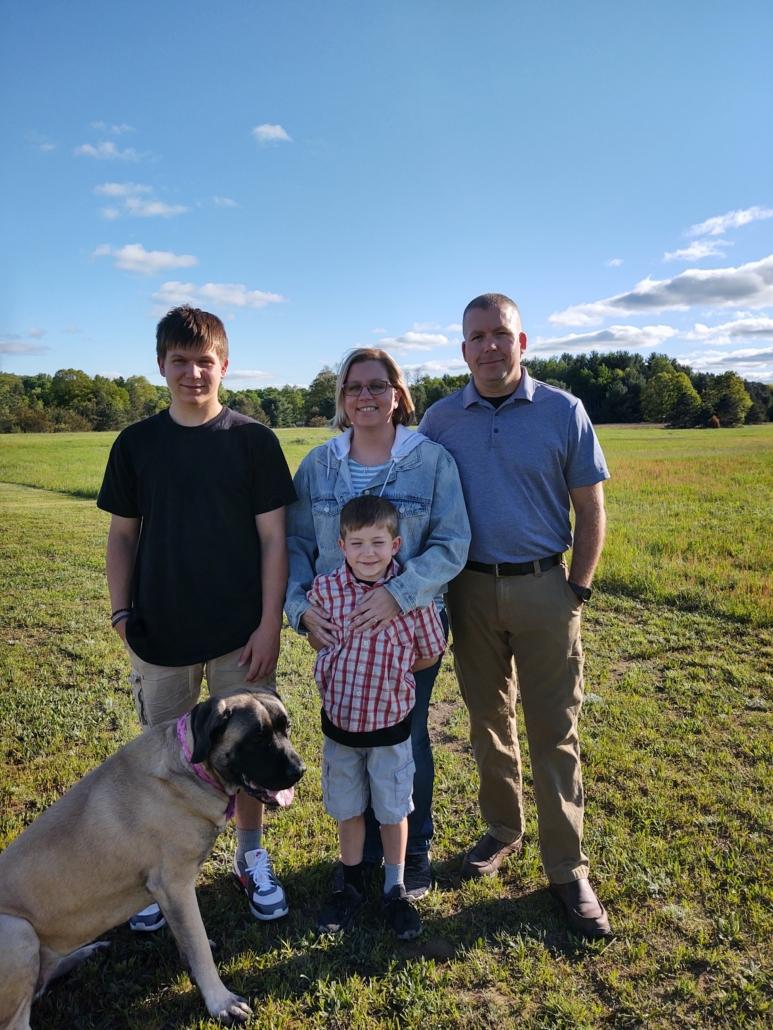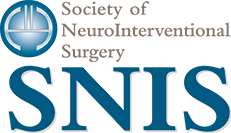Life can change in an instant, as 40-year-old Chad Thompson found out on April 23, 2022.
Then just 39, the active husband and father of two boys had just finished trimming apple trees on his brother’s property in Paris, Michigan, when he began to feel strange on the road back to the house.
“It was only about a minute drive back, but at one point we hit a bump in the field and it jarred the vehicle,” says Thompson. “It knocked my 6-year-old over, and so I went to grab him. When I sat back down in my seat, I felt different.”
At first, it was a slight change in Chad’s vision. But then he began dropping things. When he went to pick them up, he couldn’t grip them.
“Honestly, I thought I was just exerted,” he says. “It was a warm day and we had been out there for a few hours. But my sister-in-law, Cora, knew something was really wrong.”
Chad’s vision had continued to deteriorate and he had no idea what was happening. Cora—a medical technician—sat him down to evaluate his symptoms, but nothing he said made sense. She knew that he was in crisis and insisted he go to the emergency room at nearby Spectrum Health Big Rapids Hospital. While her husband drove Chad, Cora called ahead to let the hospital know she suspected he was having a stroke.
“I was able to get a CT right away, where they found a 2-centimeter clot on the left side of my brain,” Chad says. “I guess that’s what you call a severe stroke. I was given a clot-busting drug, and then EMS took me to Spectrum’s Butterworth Hospital where they could perform a thrombectomy.”
On the ride there, Chad’s mind was racing. Would he be like this forever, unable to communicate? Or worse, was he going to die? What would happen to his young family?
At Butterworth, the neurointerventional care team was waiting for Chad. This Level 1 stroke center, which treats approximately 200 strokes a year, has a stroke assessment area that they call the “hot spot.” In it, a patient is surrounded by members of the team – from an ER physician to pharmacist to an imaging. Together, they quickly assess stroke severity and can determine the best therapies for a patient.
This is where Chad met Dr. Justin Singer, director of vascular neurosurgery at Corewell Health West, who explained what was going on.
“Chad’s symptoms had become more mild since his arrival but they were fluctuating, which is dangerous,” says Dr. Singer. “He was able to move everything but had right-side weakness, and some speech difficulty. The clot was still there, and I recommended a thrombectomy to remove it right away to give Chad the best chance of recovery.”
Chad and his family agreed.
After the procedure, Chad woke up on the way to the neurological ICU, where he spent a day so that doctors could monitor his recovery and test for any short- or long-term deficits.
He passed them all, and just two days after his severe stroke, Chad Thompson walked out of the recovery unit. And not because he was young, or healthy, but because he got treatment FAST.
“Chad’s symptoms were relatively mild even though his stroke was severe,” adds Singer. “So, you can’t decide whether or not to go for help based on how debilitating your symptoms may be. Stroke flies under the radar, and people trivialize their symptoms.”
Being on the stroke recovery floor was eye-opening for Chad.
“I saw some people my age going by my door using walkers,” he says. “They weren’t in good shape. It was like glimpsing what my life could have been like.”
Today, Chad approaches life with a “yes” mentality. If someone invites him to do something, even if he’s not really up for it, the answer is “yes.” He pays more attention to the little things. He feels grateful at the end of every day.
“I really give credit to my entire care team those few days, especially Dr. Singer,” he says. “They gave me back a normal life.”
Chad and Dr. Singer are approximately the same age. “It could have been me,” says Dr. Singer. “I would want anyone in my family to have access to this treatment, so it’s a real passion for me.”
Chad’s message to others who may write off their stroke symptoms? Being wrong about a stroke isn’t the worst thing, and calling 911 could turn out to be the best decision you ever make.
“Why take that risk?” Chad challenges. “Let first responders and doctors determine whether what’s going on is a stroke.”



